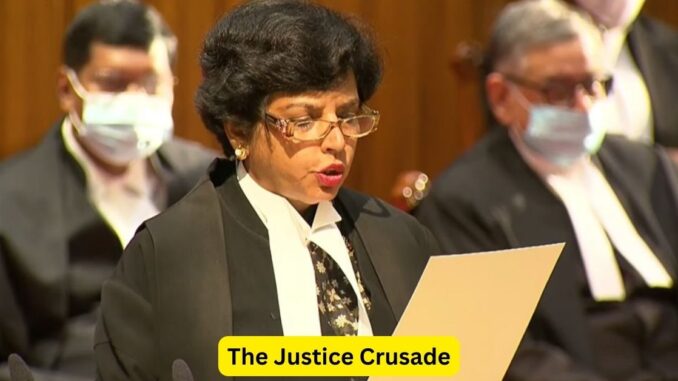
The legal profession is often seen as a noble pursuit, one dedicated to the principles of justice, fairness, and the rule of law. For many lawyers, this profession is more than just a career; it is a calling, a mission to serve society by championing the causes of the oppressed, defending the innocent, and ensuring that justice prevails. This justice crusade, driven by a deep-seated commitment to ethical principles and societal good, shapes the very essence of a lawyer’s role in society.
At the heart of this calling lies the lawyer’s duty to uphold justice. Lawyers are advocates for their clients, but they are also officers of the court, bound by ethical codes to ensure the legal system functions fairly and impartially. This dual responsibility requires balancing zealous representation with a commitment to the broader principles of justice. Lawyers must navigate this delicate balance, advocating for their clients while ensuring they do not undermine the integrity of the legal process.
The pursuit of justice often means standing up for those who cannot stand up for themselves. Many lawyers are drawn to public interest law, dedicating their careers to representing marginalized and vulnerable populations. Whether working in civil rights, environmental law, or defending the rights of indigent clients, these lawyers strive to level the playing field, providing a voice for the voiceless. Their work often involves challenging unjust laws, advocating for policy reforms, and ensuring that legal protections are extended to all members of society.
In criminal defense, the lawyer’s role is critical in safeguarding the rights of the accused. This aspect of the justice crusade can be particularly challenging, as defense attorneys often face public scrutiny and criticism. However, their work is essential in upholding the principle that everyone is entitled to a fair trial and that guilt must be proven beyond a reasonable doubt. By rigorously defending their clients, criminal defense lawyers help prevent miscarriages of justice and maintain the integrity of the judicial system.
The impact of a lawyer’s work extends beyond individual cases. Many lawyers engage in pro bono work, offering their services for free to those who cannot afford legal representation. This commitment to service reflects the profession’s ethos of giving back to the community and ensuring access to justice for all. Pro bono work can range from assisting with immigration cases, helping victims of domestic violence, to supporting nonprofit organizations in their legal needs.
Furthermore, lawyers play a vital role in shaping and interpreting laws. Through litigation, they influence judicial precedents that can have far-reaching implications for society. By participating in legislative processes, they contribute to the creation of laws that reflect societal values and protect public interests. Their expertise and advocacy are crucial in advancing legal reforms that promote justice and equality.
In conclusion, the justice crusade embodies the lawyer’s calling to serve society by upholding the principles of justice and fairness. This calling requires a profound commitment to ethical practice, a dedication to representing the underserved, and an unwavering belief in the rule of law. For those who answer this call, the legal profession offers not just a career, but a lifelong mission to make a meaningful difference in the pursuit of justice.

Leave a Reply